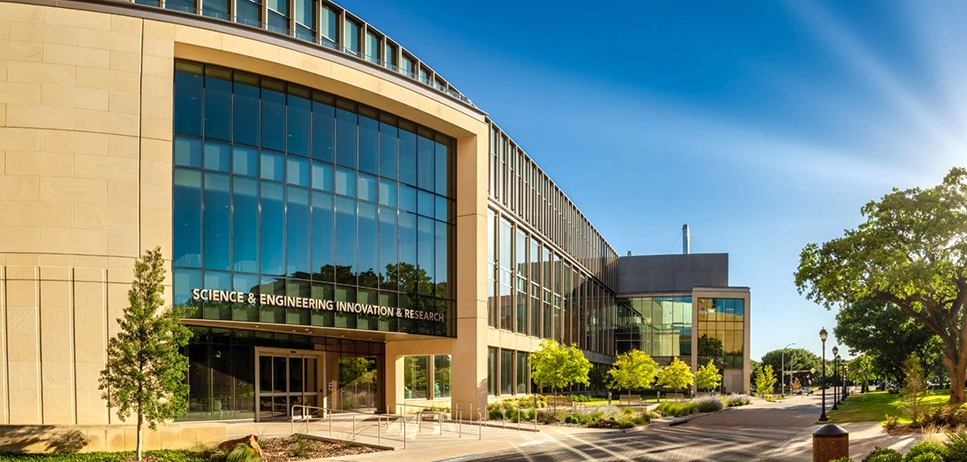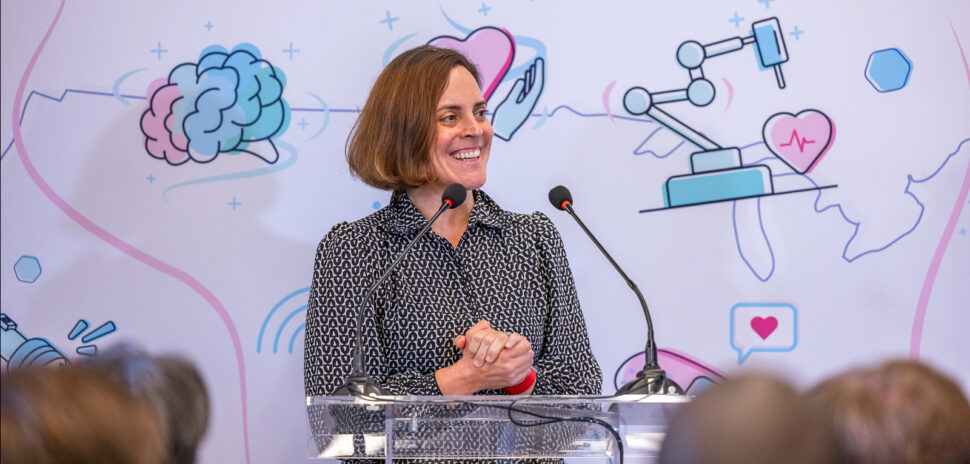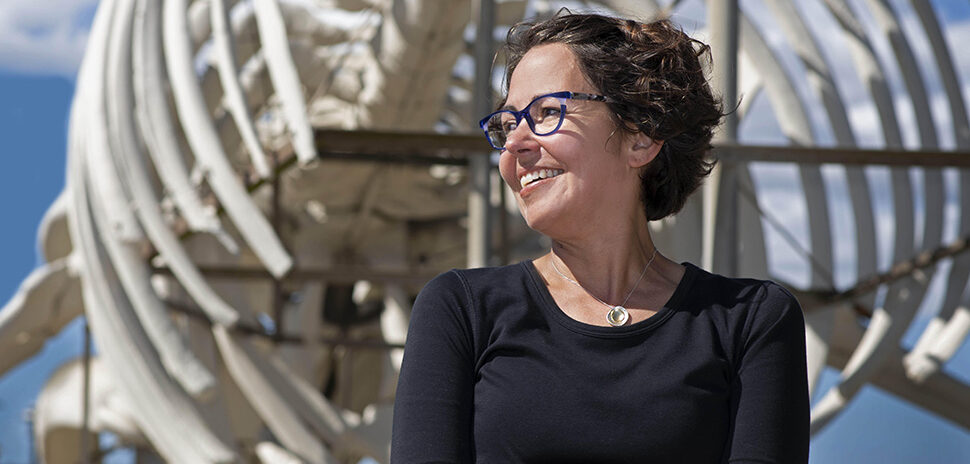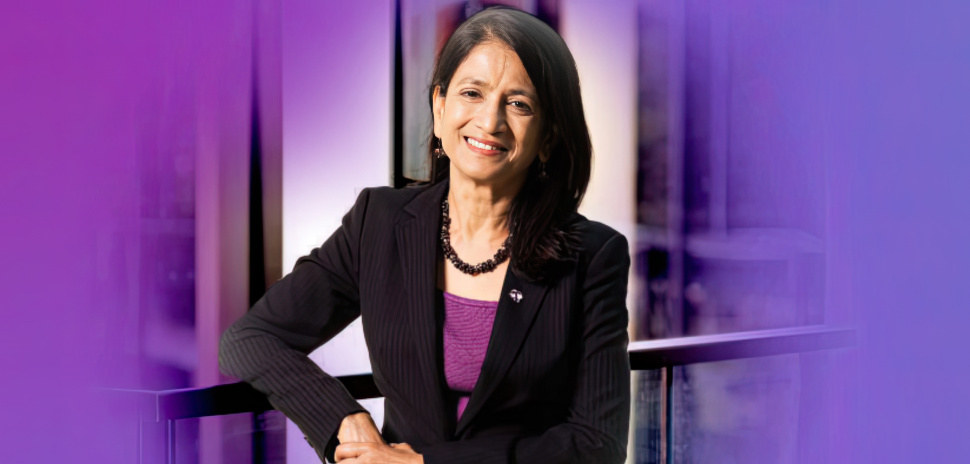Texas-based nonprofit Research Bridge Partners has appointed three new board members and named a new board chair following Lydia McClure’s June appointment as CEO.
The organization, known for its work in fostering biomedical startups from mid-continent research universities, focuses on transforming novel scientific discoveries into viable biotechnology companies.
The leadership changes follow a significant investment in North Texas last year. In 2023, Research Bridge Partners partnered with Lyda Hill Philanthropies to inject $4 million into UT Southwestern Medical Center’s biotech spinouts.
The nonprofit says it aims to develop “high-quality investment opportunities” by collaborating with innovative academic researchers to “create startups that contribute to society and drive economic value.”
New leadership at the helm
After becoming CEO this summer, McClure was also appointed board chair. She succeeds co-founder Isaac Barchas, who now serves as a special advisor and board member of Research Bridge Partners, as well as a founding partner of Arsenal Bridge Ventures.
With a doctorate in molecular biology, McClure brings a wealth of experience to her dual role. She joined Research Bridge Partners in 2017 as a vice president after holding various leadership positions with both the National Science Foundation and the Austin Technology Incubator. Prior to her appointment as CEO, she served as senior vice president, overseeing the organization’s partnership with Lyda Hill Philanthropies.
“Where Research Bridge Partners has excelled — and where we remain particularly focused — is better deal creation through better data,” McClure said in a June announcement. “That begins with helping world-class innovators understand the distinction between academic data, regulatory-facing data, and the data most valued by venture capitalists.”
McClure outlined the organization’s future direction, saying, “We expect to expand our work into new geographies and partnerships in the new year, while serving as an official spoke of the Boston investor catalyst hub within the framework launched by the Advanced Research Projects Agency for Health (ARPA-H).”
Meet the new board members
Now, with three new board members—Ann Arvin, Lydia Meyer-Turkson, and Matt Tremblay—McClure is excited about what can be accomplished together.
The CEO and board chair praised their “wealth of experience successfully developing and commercializing biomedical innovations, along with a deep personal conviction to save and improve lives in the process,”
Ann M. Arvin, M.D., a distinguished virologist and professor emerita at Stanford University, brings extensive experience in pediatric infectious diseases and vaccine development. As the Lucille Salter Packard Professor of Pediatrics and Professor of Microbiology and Immunology, Arvin has advanced understanding of herpes viruses and immune responses in children. She also served as vice provost and dean of research at Stanford University from 2006 to 2018.
“The mission of Research Bridge Partners to enable the transfer of knowledge created by talented researchers who may have limited resources for the process has my enthusiastic support,” Arvin said in a statement. “I hope to contribute to many new initiatives.”
Lydia Meyer-Turkson, former head of North American public-private partnerships for Philips, adds expertise in new business development and commercialization within the life sciences sector. With experience scaling businesses and driving initiatives in the U.S., U.K., and Europe, Meyer-Turkson is well-positioned to support mid-continent research universities in transforming groundbreaking research into viable biomedical startups.
Meyer-Turkson emphasized the organization’s unique role, noting, “Some of the world’s best biomedical research is geographically stranded,” highlighting Research Bridge Partners’ mission to unlock valuable scientific work in underserved regions.
Matt Tremblay, Ph.D., CEO of Blackbird Laboratories and managing director of Blackbird BioVentures, completes the trio. With a doctorate in chemistry from Columbia University, Tremblay brings a deep background in drug discovery and biotechnology. He previously served as COO of The Scripps Research Institute and its drug discovery affiliate, Calibr.
Tremblay praised the organization’s track record, noting the nonprofit’s “impressive track record of success in identifying and enabling ground-breaking technologies to create and grow new biotech companies.”
A dual funding approach
The nonprofit’s funding strategy utilizes both tax-exempt and for-profit capital to maximize societal impact while attracting additional investment dollars.
This approach, according to the nonprofit, aligns with its mission to bridge the gap between mid-continent research universities and the commercialization resources concentrated in major hubs like Silicon Valley and Boston.
“We enable innovators to become the scientific co-founders of successful spinouts,” McClure explained, “working with them to develop IP, regulatory, business development and product strategies. We also connect them with like-minded investors, scaling business talent and drug developers.”
Growing portfolio of innovative startups
Research Bridge Partners’ work is reflected in its growing portfolio of biomedical startups. In 2023, the organization made both a pre-seed and seed investment in Tetricus Labs, a Yale University spinout developing a machine-learning platform for precision psychiatry.
The nonprofit’s portfolio also includes Asalyxa Bio, a University of Michigan spinout pioneering drug-delivery technology for inflammatory diseases, and Morphimmune, which is developing hyper-targeted small molecules to reprogram immune cells for disease treatment.
Another standout in the portfolio is Novosteo, a company focused on fracture-targeting therapeutics for bone healing.
The new board members join as co-founders Gil Cloyd, Linda Grais, and Reid Hoffman transition off the board. Co-founder and former CEO Barchas will remain on the board, which now consists of five members.
McClure summarized the organization’s mission and its hands-on approach to nurturing biomedical innovation: “We enable innovators to become the scientific co-founders of successful spinouts, working with them to develop IP, regulatory, business development and product strategies. We also connect them with like-minded investors, scaling business talent and drug developers.”
![]()
Get on the list.
Dallas Innovates, every day.
Sign up to keep your eye on what’s new and next in Dallas-Fort Worth, every day.






























